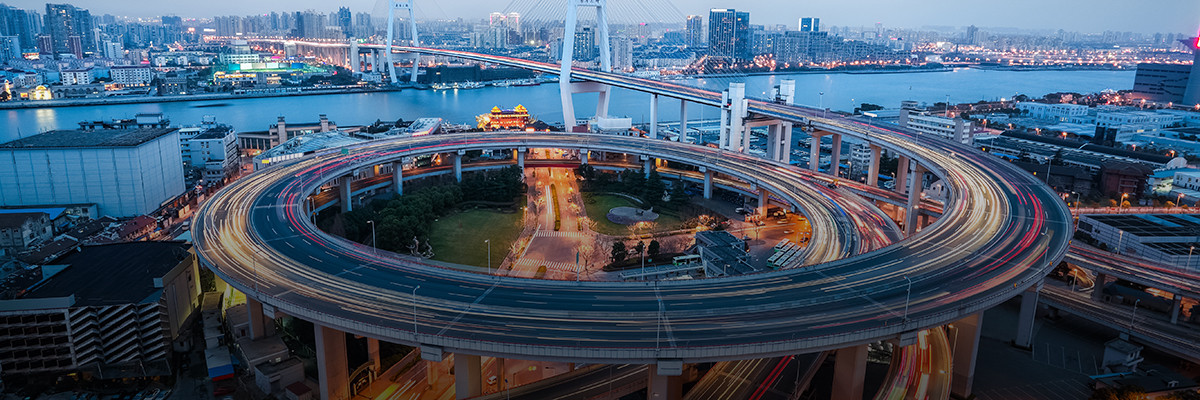
Authors
-
Emilie Prattico
Former Manager, BSR
The freight transport required to send our goods all over the world accounts for about 7 percent of global carbon emissions, making it a significant contributor to climate change and an important potential climate leadership opportunity. Unfortunately, there are many barriers to achieving climate leadership for the transport sector, from the slow turnover of inventory and infrastructure to the high capital costs and uncertainty characterizing many potential low-carbon solutions.
There is good news, however: Many levers already exist to improve performance, including greater route and vehicle efficiency, modal shifts (using different transport modes over a single route), and the scaling of low-carbon fuels. What’s more is, many of these levers have a proven positive return on investment—particularly energy efficiency measures—and efficient, low-carbon transport systems also have significant co-benefits.
So, how can we reach full speed on the route to low emissions?
This question was the subject of a panel that BSR organized at the Business and Climate Summit, held in London last week. We invited UPS’s Director of Sustainability for Europe, the Middle East, and Africa Peter Harris; Volvo’s Director of Environment and Energy Patrik Klintbom; and International Transport Forum’s (ITF) Secretary General José Viegas to debate these points and present the levers their organizations have activated to address climate change. The panelists’ message was clear: The future of low-emissions freight transport lies in the nexus of smart policy, fuel efficiency, and innovation on systems, space, and data.
First, on smart public policy: According to ITF’s Viegas, when it comes to climate and transport, “The most effective thing we can do is to align policies.” The transaction costs of complying with different policies across markets and modes are barriers to finding systemic climate solutions for complex transport routes. Consistent public policies on transport that span multiple regions can help the transport sector overcome these barriers. In addition, alignment with urban regulation and planning can enhance the results of low-emissions strategies by tackling air pollution and congestion.
At the same time, dramatically improved fuel efficiency and the development of commercially viable sustainable fuel choices are key to decarbonizing trucking in particular, as Volvo’s Klintbom noted (Volvo is the world’s largest manufacturer of trucks). The sector can achieve massive efficiency gains through the application of new technologies, changing driving behavior, and more efficient spatial planning of routes and supply chains. And a number of emerging lower-carbon fuels and technologies will become a much more important part of the mix in coming years.
This echoes the vision and work of BSR’s own Future of Fuels initiative, which recently launched a tool for fleet owners to engage their fuel suppliers and make choices that work best for them. BSR’s Fuel Sustainability Tool was developed with initiative members with large fleets, such as the Coca-Cola Company, PepsiCo, UPS, and Walmart; equipment manufacturers such as Westport Innovations and Volvo; and fuel producers such as Shell and Suncor. The tool provides credible and comparable climate and sustainability data, so that fleets can ask the right questions of vehicle and fuel suppliers and know what to expect from clean fuel claims, while signaling demand for more sustainable fuels.
Finally, technological innovation will spur radical changes in the sector, steering it toward low- or no-emissions models that yield significant co-benefits on congestion, air pollution, or improved services. As Peter Harris of UPS pointed out, “For net-zero transport in the long run, a fully automated transport system is on the table.” Additionally, big data will increase the efficiency of logistics: UPS already deploys an advanced route planning and guidance system that finds the most energy efficient way to deliver packages for a given set of stops. Big data also enables the development of true “demand-responsive” shared transport, according to ITF, helping the commercial freight industry optimize the use of space and assets—in the same way that companies such as Uber and Lyft are changing individual mobility. This will contribute to reduced emissions and congestion, as well as better use of urban space.
Good-quality data on emissions performance of all transport modes is also critical for cargo owners to properly measure their Scope 3 emissions and thus incentivize their logistics partners to act on climate. Panel moderator and BSR Senior Vice President Eric Olson mentioned two notable developments: first, the launch of the Global Logistics Emissions Council Framework, which collates existing methodologies into one handbook for global shippers and forwarders to apply across their supply chains. Second, as Olson noted, is the role of green freight programs to support the “beyond reporting” paradigm, scale ambition across sectors for real emissions reductions, and work on climate adaptation. BSR’s Clean Cargo Working Group, which represents more than 85 percent of the container shipping industry, is exploring these issues, with funding support from the We Mean Business coalition.
Your discussion at the Business and Climate Summit centered on the inevitable path to low-emissions freight transport, with concrete and pragmatic suggestions for achieving a decarbonized future. We did not leave the debate with a wistful hope of a better future, but rather with the very clear sense that the question at hand was not if these conditions will ever be met, but rather how quickly we can travel the route to low emissions.
You can watch the video of the discussion here. And if you're interested, you can also view President and CEO Aron Cramer's plenary session on the Paris Agreement and what it means for business.
BSR’s latest sustainability insights and events straight to your inbox.
Let’s talk about how BSR can help you to transform your business and achieve your sustainability goals.